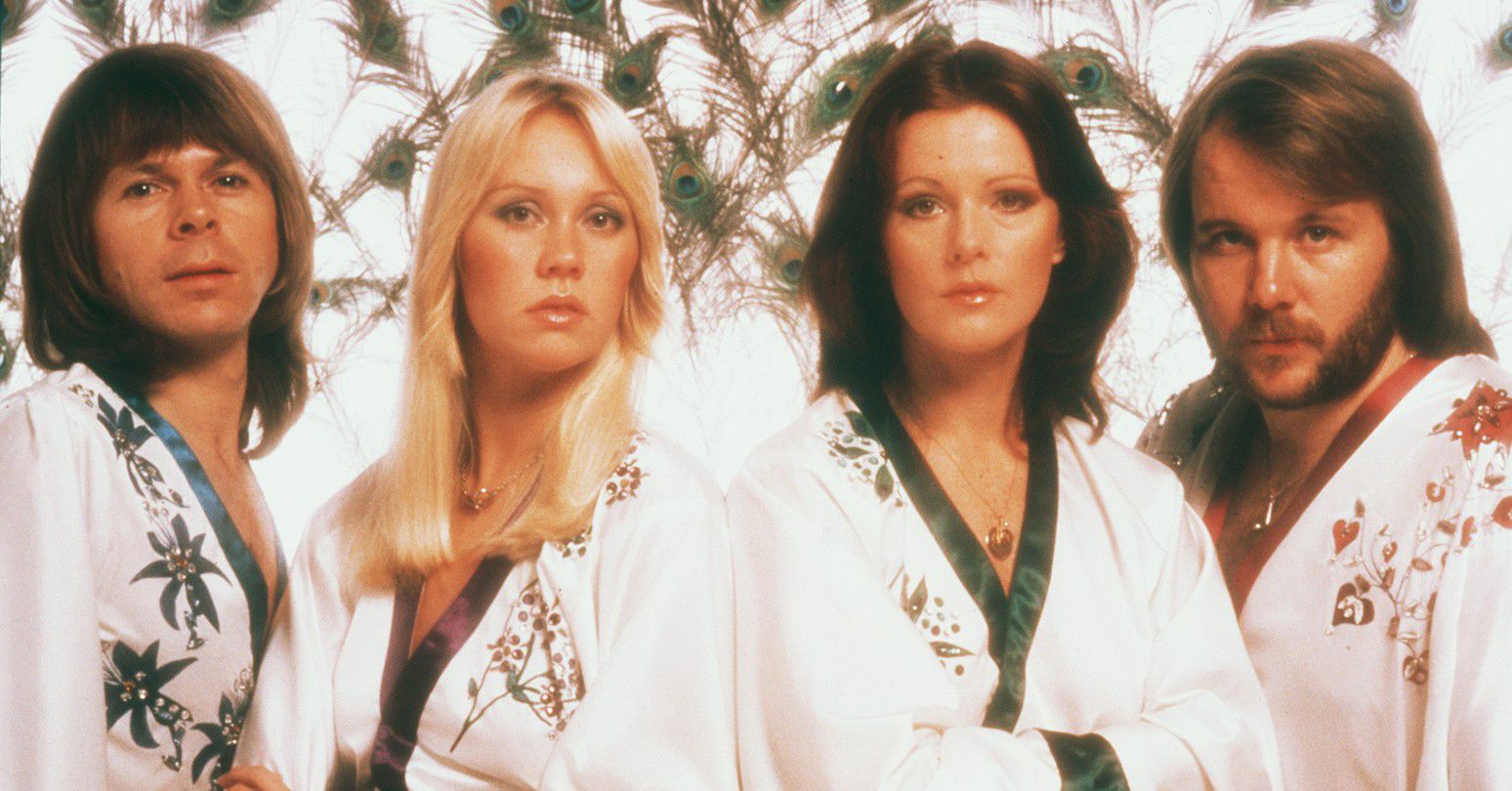The album Ring Ring was produced before ABBA discovered their trademark vocals and unmistakable sound (or name). As a result, the tracks are basic compared to later recordings, which feature on-point harmonies and complex instrumentals. However, the no-frills output couldn't disguise Benny and Björn's songwriting talents.
There are quality pop tunes in the compilation, such as "Love Isn't Easy (But It Sure Is Hard Enough)," "Nina Pretty Ballerina," and "He Is Your Brother" (a live favourite on ABBA's tours). These early songs were danceable and catchy, but didn't showcase the breadth of talent these four musicians possessed or the fantastic sound they would eventually gift to the world.
8 The Collaborations
Benny Andersson and Björn Ulvaeus were in separate bands, but in the early 7'0s decided to team up to write, produce, and perform songs together using only their first names. Their wives, Anna-Frid Lyngstad (a cabaret singer) and Agnetha Fältskog (already established in the charts), occasionally sang back-up for the men.
The foursome would soon discover this was a winning combination.
7 The First Track Was Released Before They Were Called ABBA
The first track the quartet recorded together, "People Need Love," was laid down in March 1972 and released as a single a couple of months later. The foursome wasn't called ABBA yet - the artists were going by the group name Björn & Benny, Agnetha & Anni-Frid. With the women on lead vocals, it became a minor Swedish hit. This single was the breakthrough they had been waiting for, and it inspired them to move forward as a group. The four artists went to work on what would be their debut album, Ring Ring.
6 They Entered The 1973 Eurovision Song Contest
B & B's business mentor, Stig Anderson, was approached alongside the duo to submit a song for the Swedish entry-heats to the following year's Eurovision Song Contest. "We wanted to do something poppy...that reflected the popular music tastes." Udiscovermusic.com quoted Stig as saying, "We wanted to get rid of all the pomp and circumstance surrounding the Eurovision Song Contest." So, in January 1973, the group joined Stig at his summer retreat on Viggsö Island and Ring Ring was born.
5 'Ring Ring' Was The Early Favourite At Eurovision
This now classic song was predicted to be the winner at the 1973 Eurovision Song Contest, but it came in third. Perhaps because the bandmates weren't interested in all the usual trappings related to an event like this and shunned the formal dinner jackets and evening gowns.
Or, it could simply be they lost because the song didn't deserve to win. It's hard to understand the ABBA we know today losing any contest, but this entry was weak, at best. Although catchy, it wasn't memorable.
4 They Confounded Their Critics
Ring Ring hit the airwaves on March 26, 1973, in Scandinavia, Germany, and Australia, among others. While ABBA's Eurovision effort stalled at fifth place on the night of the contest, it topped the charts in Belgium and was a success in the Netherlands, South Africa, and Norway. The album began a six-week run at the top of the Swedish singles charts that spring.
The fans had spoken - loudly - and it was thumbs down to the Eurovision judges. It wouldn't be the last time ABBA confounded critics and had been validated by those that matter most: the record-buying public.
3 "Disillusion" Is Agnetha's Only Ever Songwriting Credit On An ABBA Album
With a hit song pumping through the airwaves, ABBA knew they had to come out with an album fast, but the birth of Agnetha's daughter in February 1973 slowed recording time. Still, they managed to lay down three more tracks, including the ballad "Disillusion", Agnetha's only composition ever to get a songwriting credit on an ABBA track. Coincidently, it's also the only song where Benny doesn't get a writing acknowledgement.
This song foreshadowed the more downbeat arrangements that would eventually make it into their catalogue, such as "Winner Takes All" with Agnetha on vocals.
2 Western Fans Thought 'Waterloo' Was ABBA's Debut Album
While Europe and other countries had discovered this new, vocally superior group in 1973, the UK and US were unaware of ABBA until their second record Waterloo came out in 1974. The single "Waterloo" earned them first place at Eurovision 1974 and became a worldwide hit. In the US, the LP peaked on the Billboard Charts on August 24, 1974 after 17 weeks and reached sixth place. This was an unusual accomplishment for an unestablished foreign music act, except for those bands in The British Invasion, who tended to want the media attention and weren't subtle about getting it.
It's not surprising western listeners believed Waterloo was ABBA's debut album - Ring Ring wasn't released in the US until September 1995, more than 20 years after its original European release.
1 It Laid The Groundwork For Their New Album
On September 2, 2021, ABBA released "I Still Have Faith In You," their first single in over 40 years, and one week later, the video had 17,264,120 views, impressive by anyone's standards. Their second single from the album, "Don't Shut Me Down" hit YouTube the next day and has 3,234,254 hits and counting. It's a prelude to their exciting new album, Voyage, and it's sweeping long-time fans back into their arms and scooping up loads of new ones in the process. Many see the record as having major cultural significance by creating unity through music, which the world desperately needs.
For whatever reason, the listening public isn't finished with ABBA yet. And, it appears they aren't done with us, either. Hopefully, this is only the first of future albums, not just a last-ditch effort to be relevant again.

